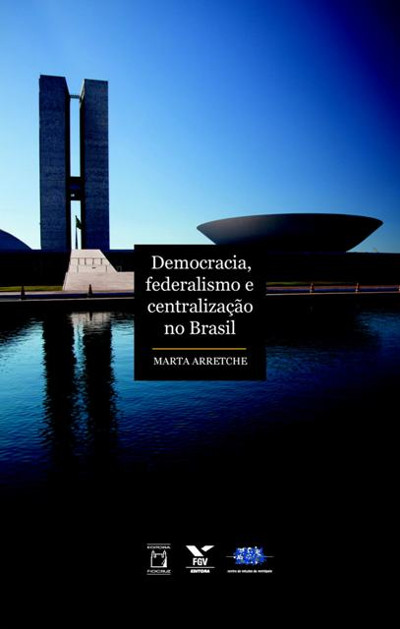Book on Federalism gets Honorable Mention in a contest of ANPOCS 2013
On September 24th 2013 the book "Democracy, federalism and centralization in Brazil" (Democracia, federalismo e centralização no Brasil), authored by Marta Arretche, director of CEM and professor of the Department of Political Science (USP) was awarded by ANPOCS' Brazilian Prize of Scientific Works and College Theses in Social Sciences - 2013 Edition, in the category Scientific Work, Honorable Mention. The book was released in 2012 by Fiocruz and FGV Publishers.
 "Although centralized, Brazilian federation allows local governments to innovate in the implementation of public policies"
"Although centralized, Brazilian federation allows local governments to innovate in the implementation of public policies"
The initial evaluations after the 1988 Constitution were that the Brazilian federation - Union, states and municipalities - operating in a decentralized manner could strengthen democracy. After the initial euphoria, criticism emerged, according to which such decentralization could act as a barrier to democracy because the autonomy of states and municipalities could difficult unified actions, generating imbalances among the constituent units. In her book Democracia, Federalismo e Centralização no Brasil(Democracy, Federalism and Centralization in Brazil), Fiocruz and FGV Publishers based on empirical evidence of long historical series and comprehensive information, the political scientist Martha Arretche disagrees with the two previous approaches and presents a new interpretation: the Brazilian federal system is very centralized, which should not be confused with the absence of mechanisms to curb the influence of the central government - despite the strong presence of the Union, states and municipalities are relevant actors in the formulation and implementation of public policies.
"This theoretical research assumes that federal states do not necessarily produce dispersion of political authority," added Marta. "The book argues that, throughout the 20th century, the Brazilian federation has become highly integrated, although each level of government is endowed with its own political authority. The construction process of the national state operated towards the centralization of political authority" she adds. The research that led to the book examined two dimensions: the veto power of the constituent units in the central decision arenas and autonomy of subnational governments to decide their own policies.
Marta Arretche is director of the Centre for Metropolitan Studies and livre-docente Professor at the Department of Political Science of University of São Paulo.
Synopsis: Going against the mainstream, Democracy, Federalism and Centralization in Brazil, presents an innovative interpretation of the functioning of the Brazilian federal system. Focusing on the role of the Union, Marta Arretche, shows the various mechanisms that promote the authority of the central government and, consequently, a very centralized federation. The Union has broad legislative prerogatives, large regulatory capacity and a significant control over resources. Contrary to what many analysts say, 1988 was another chapter in the great movement of state centralization which has begun in the 1930s.







